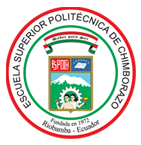Characterization of containerization system of Riobamba city thought multivariate analysis
DOI:
https://doi.org/10.47187/perf.v2i22.62Keywords:
Multivariate analysis, containerization system, urban solid wasteAbstract
The correct management of urban solid waste has been a permanent concern for municipal go- vernments due to the great volume generated. In order to improve the collection system of these waste, the Municipal Autonomous Decentralized Government of Riobamba in 2 013 used a contai- nerization system based on the experience of door to door picking. In this investigation, the geo- rreferenciation of the containers was made generating digital maps and was determined the per- ception of users about the implemented system, through the application and validation of research instruments. The data obtained were subjected to the multivariate analysis determining that the effectiveness, frequency, location and culture-municipal budget characterized the phenomenon. Regarding these factors, the daily collection was satisfactory for 528 users, while 302 affirmed the good condition of the containers, 407 their enough capacity and 384 coincided with an adequate location of the container. However, 232 users detected a bad smell due to lack of washing and 248 reported misuses. The characterization of containerization service will contribute to establish po- lities focused on their improvement.
Downloads
References
Ministerio del Ambiente de Ecuador. Programa Nacional para la Gestión Integral de Desechos Sólidos PNGIDS. [Internet]. 2016. [citado 12 nov 2018]. Disponible en: http://www.ambiente.gob.ec/programa-pngids-ecuador/
CONAMA. Congreso Nacional del Medio Ambiente. Modelos y costes en la gestión de residuos municipales. [Internet]. 2014. [citado 15 nov 2018]. Disponible en: http://www.conama.org/conama/download/files/conama2014//GTs%202014/8_final.pdf
Burgos J., Prieto C. Aplicación de la tig para la optimización de los servicios de recogida y gestión de los residuos sólidos urbanos del municipio de Aspe (Alicante). XVI Congreso Nacional de Tecnologías de la Información Geográfica. Alicante. [Internet]. 2014. [citado 02 dic 2018]. Disponible en: http://blog.cetop.es/wp-content/uploads/2012/06/1-X.Torrent1.pdf
Blanco, A. Localización óptima de contenedores de residuos sólidos urbanos en Alcalá de Henares. Revista electrónica de Medio Ambiente UCM. [Internet]. 2016. [citado 06 dic 2018]. Disponible en: http://revistas.ucm.es/index.php/MARE/article/viewFile/53155/48811
Torret X., Sala J. Herramientas de código libre. Una realidad para la gestión ambiental aplicada a los servicios urbanos. Congreso de Ingeniería Municipal. [Internet]. 2012. [citado 06 nov 2018]. Disponible en: http://blog.cetop.es/wp-content/uploads/2012/06/1-X.Torrent1.pdf
Murray R., S. Estadística. Segunda ed. España - Madrid: Lavel. ISBN 0-07-060234-4. 1995. pp. 1-593
López Álvarez J.V., Aguilar Larrucea M., Soriano Santandreu F., Fernando de Fuentes A. Containerisation of the selective collection of light packaging waste material: the case of small cities in advanced economies. 2009. [citado 22 nov 2018]. Cities 26, 339-348. http://dx.doi.org/10.1016/j.apenergy.2008.08.018
World Bank. WHAT A WASTE: A Global Review of Solid Waste Manag. Urban Development Series Knowledge Papers; Urban Development & Local Government Unit, World Bank: Washington, DC, USA. 2012
Ikhlayel, M. Development of management systems for sustainable municipal solid waste in developing countries: A systematic life cycle thinking approach. J. Clean. Prod. 2018, 180, 571–586.
Rada, E.C.; Zatelli, C.; Cioca, L.I.; Torretta, V. Selective collection quality index for municipal solid waste management. Sustainability. 2018, 10, 257.
Hettiarachchi H., Meegoda J., Ryu S. Organic Waste Buyback as a Viable Method to Enhance Sustainable Municipal Solid Waste Management in Developing Countries. 2018. Int. J. Environ. Res. Public Health, 15(11), 2483; doi:10.3390/ijerph15112483
Pérez J, Lumbreras J, De la Paz D, Rodríguez E. Methodology to evaluate the environmental impact of urban solid waste containerization system: A case study. J. Clean. Prod. 2017; (150), 197-213. Disponible en: https://doi.org/10.1016/j.jclepro.2017.03.003
Gallardo, A, Beltrán, D, Bovea M, Colomer, F,Alberola, M. Diseño de una herramienta SIG para la recogida selectiva de residuos urbanos. Aplicación a Castellón de la Plana. 2010. [citado 11 nov 2018]. XIV International Congress on Project Engineering. Madrid.
Kumar G. T, Municipal Solid Waste Management in India: A Few Unaddressed Issues. Proc. Environ. Sci. 2016; (35), 169-175.
Downloads
Published
How to Cite
Issue
Section
License

This work is licensed under a Creative Commons Attribution-NonCommercial 4.0 International License.


























